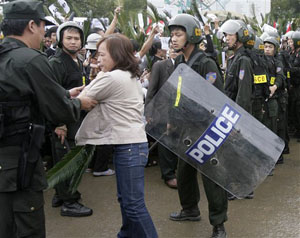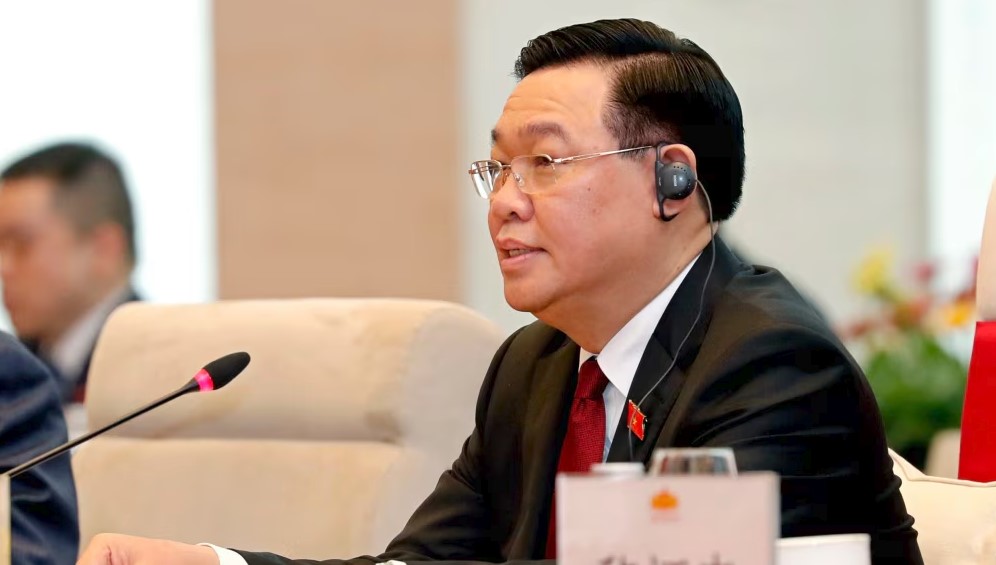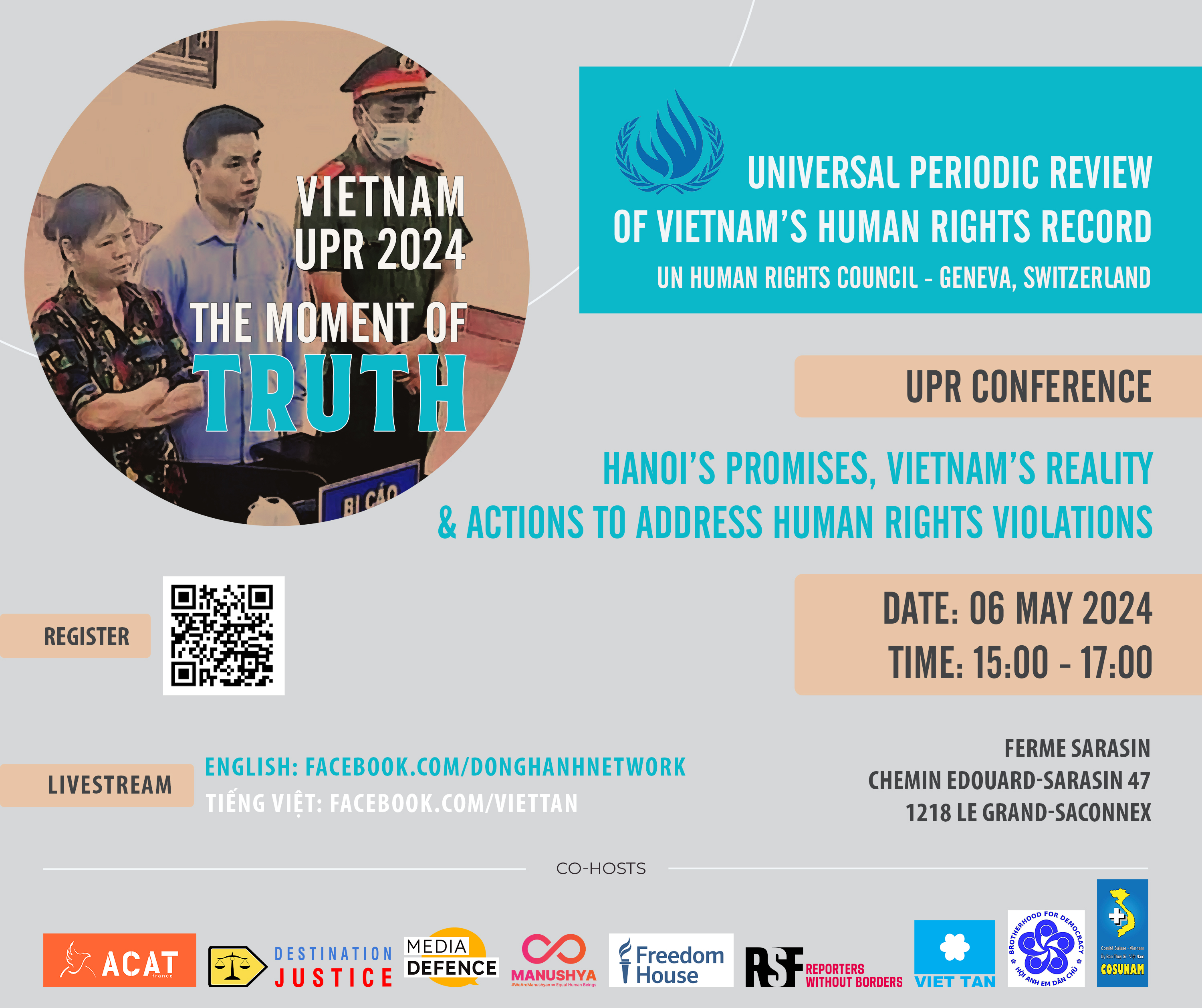April 02, 2009
Patrick Goodenough, International Editor
(CNSNews.com) – Five months after Internet giants Google, Microsoft and Yahoo pledged to uphold privacy and freedom of expression when operating in repressive environments, a group of U.S. lawmakers is urging them to resist pressure from Vietnam’s communist government.
Vietnamese-American activists say that Hanoi, emulating China’s censorship practices, is stepping up efforts to curb a thriving blogging sector.
As the number of Internet users in the country soars – an estimated quarter of the population now uses the Internet, according to the International Telecommunications Union – critics say the government is trying to prevent the medium from being used for purposes it regards as threatening to stability.
In a country where media are state-controlled, blogs provide a rare platform for Vietnamese to exchange ideas and debate issues including sensitive political topics.
According to Reporters Without Borders, a press freedom watchdog, measures introduced in January restrict blogs to providing personal information, prohibiting their use to disseminate press reports.
One of the new measures, it said, requires blog platform hosts to provide information about the activities of their clients every six months, or at the government’s request.
Viet Tan, a pro-democracy group banned in Vietnam, says a government agency set up late last year under its Ministry of Information and Communications aims to monitor the Internet and control the flow of information from bloggers.

In a new report, Viet Tan activists Duy Hoang, Cuong Nguyen and Angelina Huynh said the ministry has expressed the wish that foreign Internet companies “comply with provisions in the new decree, including providing personal information on bloggers to government authorities upon request.”
“Any collaboration to help the Vietnamese government gain more control over the Internet, like in the case of China, will set back the Vietnamese blogger movement,” they said. “More bloggers will be arrested and more information will be blocked from Vietnamese citizens.”
Twelve members of Congress wrote this week to Yahoo Inc. CEO Carol Bartz, Microsoft Corp. CEO Steve Ballmer, and Google Inc. chairman and CEO Eric Schmidt, voicing concern about “the worsening Internet restrictions in Vietnam.”
“We strongly urge you to advocate for the freedoms of speech and expression for the citizens of Vietnam by continuing to provide your technologies to the people of Vietnam in a manner that respects their rights and privacy,” they wrote.
U.S. Internet companies have come under fire in recent years over their operations in China, where they have been accused of colluding with restrictive policies. Yahoo in particular was slammed for providing authorities with personal user information later used in trials of “cyber dissidents” jailed for using the Internet to question government policies.
Google and Microsoft were also criticized for cooperating with Chinese censorship efforts.
The firms said they were merely complying with local laws, but mounting pressure saw the Bush administration in 2006 launch a taskforce on global Internet freedom and Congress hold hearings.
Last October, the Internet giants joined other technology companies, press freedom organizations and academics in a new Global Network Initiative (GNI), aimed at helping companies protect privacy and freedom of expression when they encounter laws and policies that interfere with those rights.
The principles they signed up to included commitments to respect and protect freedom of expression and privacy rights of users when confronted with government demands or laws that compromise privacy or suppress freedom of expression “in a manner inconsistent with internationally recognized laws and standards.”
In their letter, the 12 lawmakers commended the firms for the GNI.
“It signifies your efforts to respect Internet freedom despite the pressure from authoritarian governments,” they wrote.
Kevin Kutz, a Microsoft director, said Wednesday the company had yet to receive the letter.
“Microsoft’s mission is to enable people and organizations to realize their full potential, including the social and economic opportunity that technology can unlock through access to information,” he said.
Kutz said Microsoft’s GNI membership helped the company to further that mission. It created “a strong foundation to engage further around the globe to help advance basic protections for freedom of expression, privacy and to build consumer trust across global networks.”
Yahoo and Google spokespersons did not respond to queries by press time.
The letter was signed by Democrats Loretta Sanchez and Michael Honda (Calif.), James Moran (Va.), Michael Honda (Calif.), Madeleine Bordallo (Guam), Maurice Hinchey (N.Y.), Hank Johnson (Ga.), Neil Abercrombie (Hawaii), and Niki Tsongas (Mass.); and by Republicans Daniel Lungren and Ed Royce (Calif.), Joseph Cao (La.) and Thaddeus McCotter (Mich.).
Source: CNSnews.com





